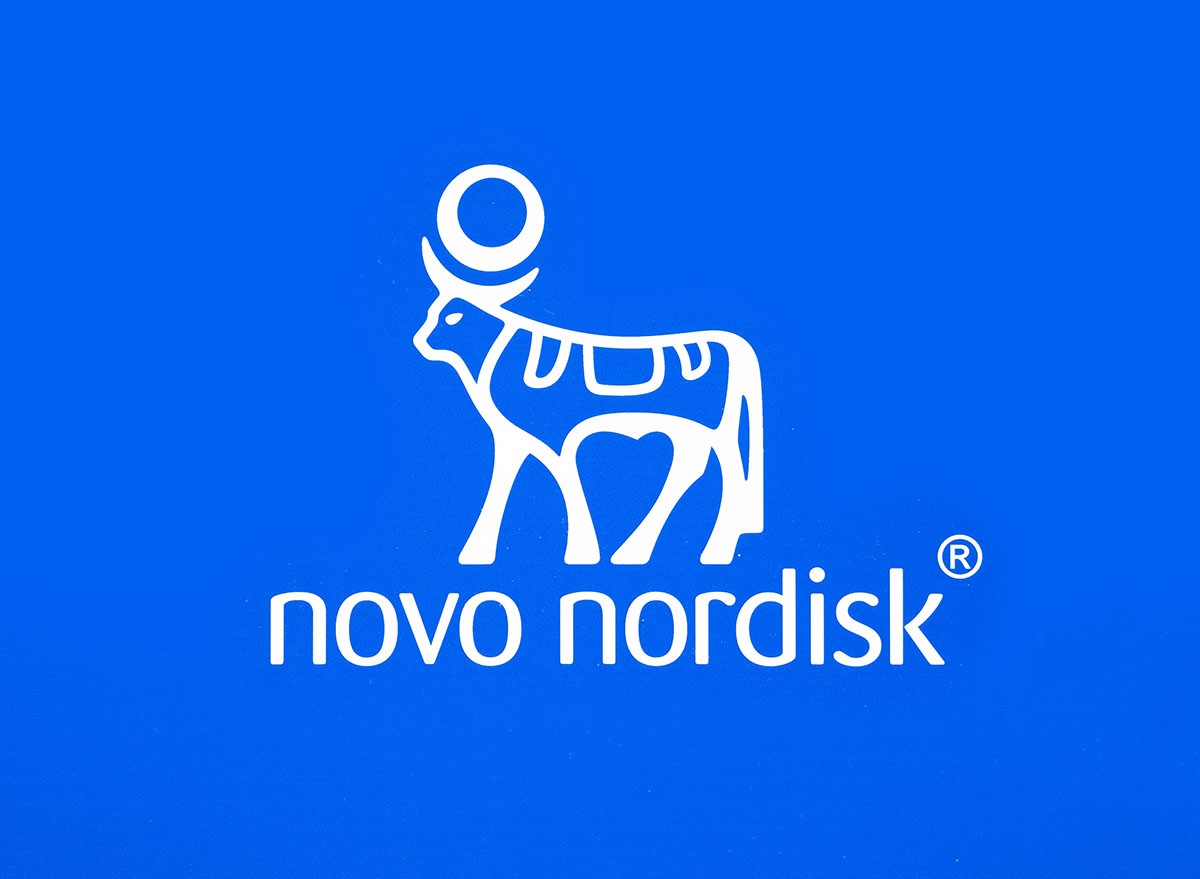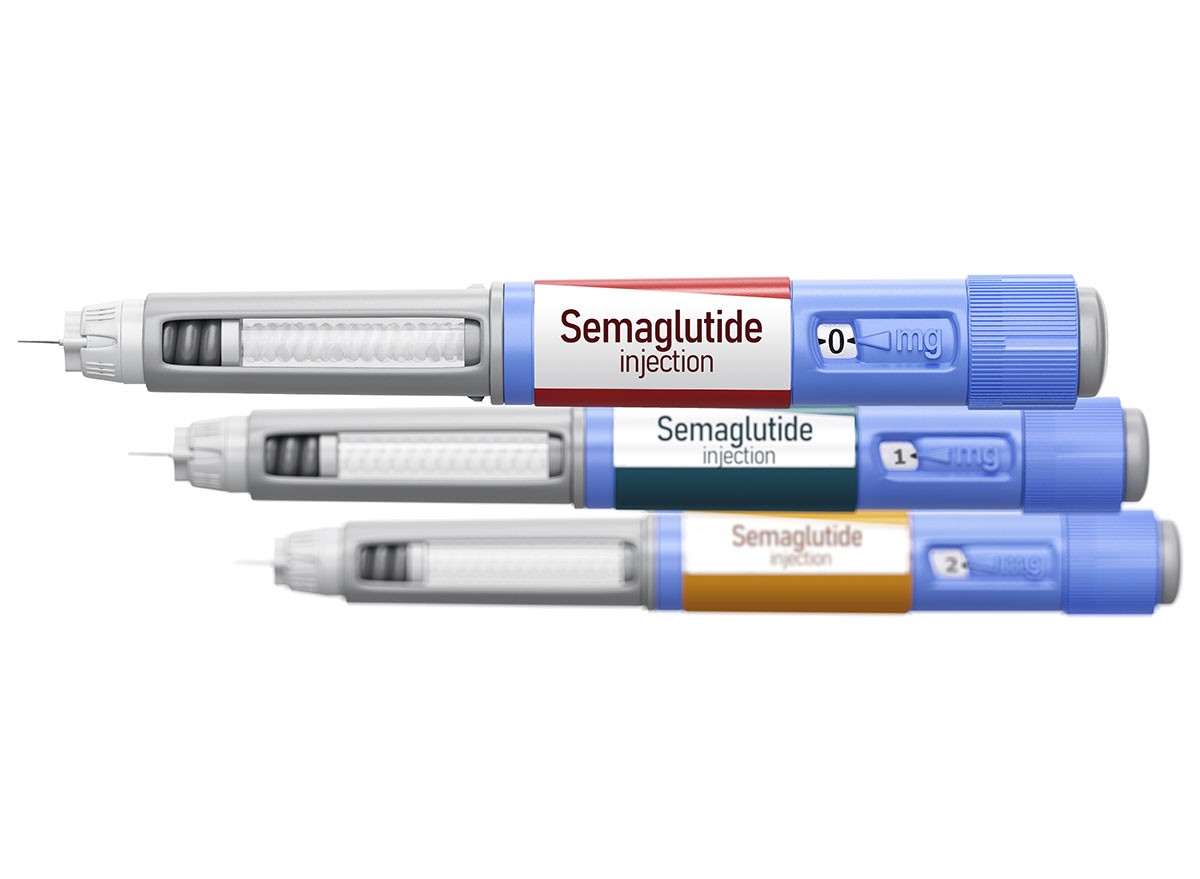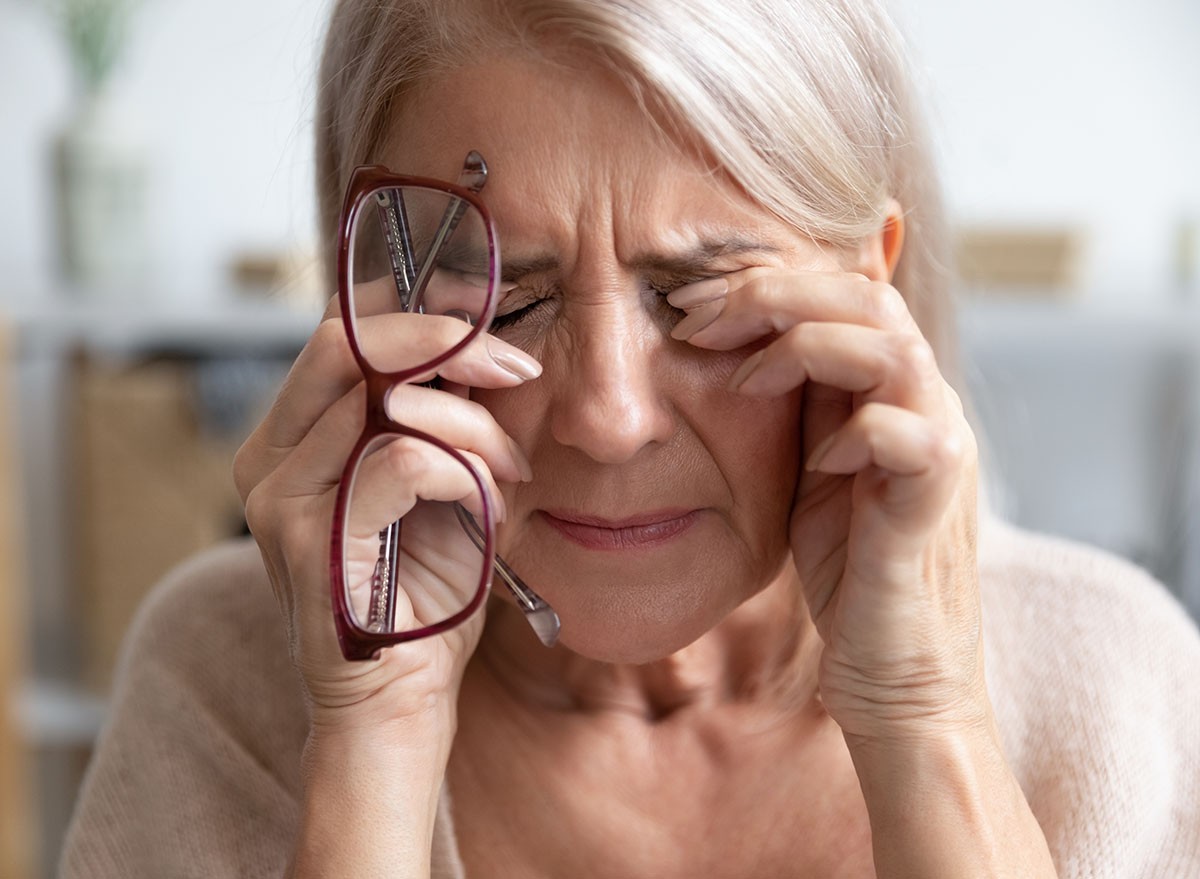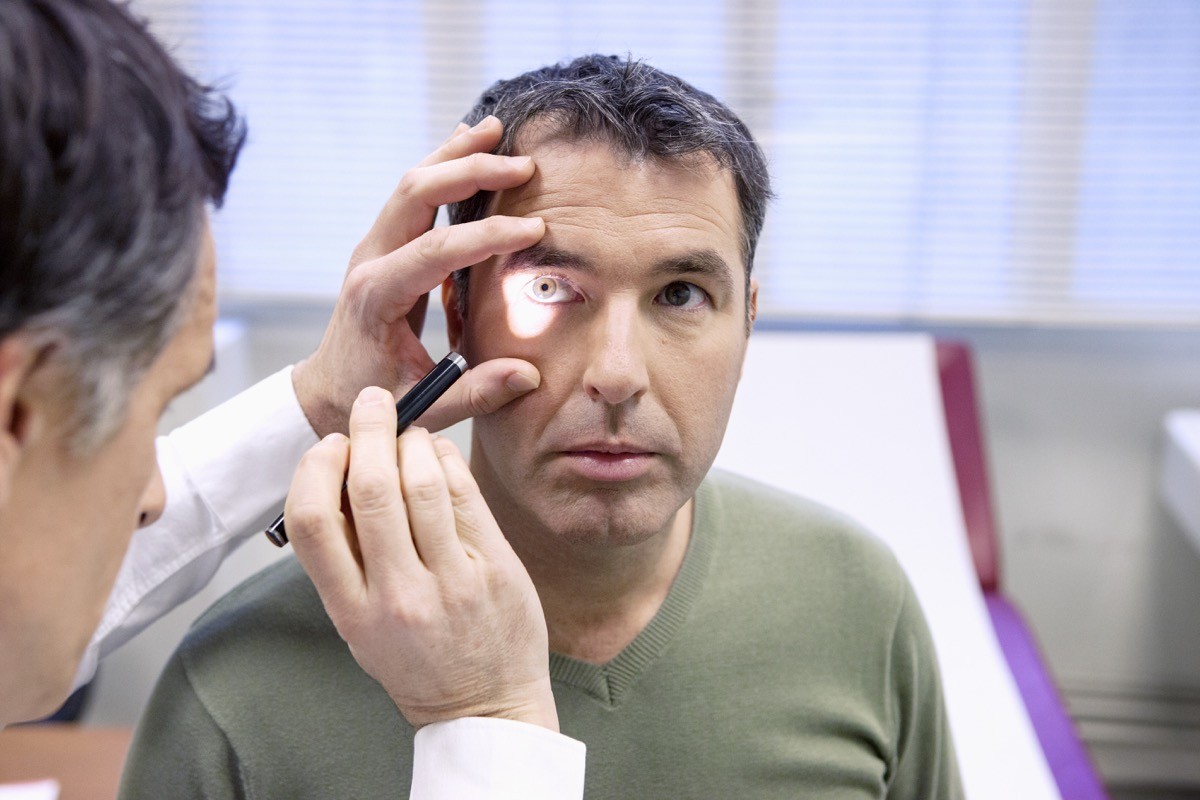Ozempic Users Warned About Rare Side Effect That Could Cause Blindness

Since Ozempic (semaglutide) was introduced in 2017, users have reported a host of unpleasant side effects linked to the (otherwise highly effective) drug—and now there’s a new one to add to the list. Danish health authorities are concerned Ozempic, made by Novo Nordisk, may be causing some users to develop an eye-rotting condition that could lead to blindness. “It is, in effect, a stroke of the optic nerve,” Dr. Joseph Rizzo, the director of neuro-ophthalmology at Mass Eye and Ear in Boston, tells NBC News. Here’s what people taking Ozempic need to know.
RELATED: 10 Simple Ways to Quiet “Food Noise,” Dietitians Say.
Ozempic and NAION

Two recently-published Danish studies found that Ozempic increases the risk of non-arteritic anterior ischemic optic neuropathy (NAION), more than doubling the risk for people who have type 2 diabetes. “Arteritic conditions involve arterial inflammation (arteritis),” says the Cleveland Clinic. “These conditions usually happen with types of vasculitis (blood vessel inflammation). Nonarteritic means there’s no arterial inflammation and it usually happens because of limited blood flow to the optic nerve.” This limited blood flow is what causes blindness.
Reports on the Rise

The Danish Medicines Agency has received 19 reports of semaglutide-related NAION since December 2024. Novo Nordisk maintains that patient safety is their priority. “After a thorough evaluation of the studies and Novo Nordisk’s internal safety assessment, Novo Nordisk is of the opinion that the benefit-risk profile of semaglutide remains unchanged,” the company said in a statement.
Correlation and Causation

The European Medicines Agency (EMA) is reviewing the Danish studies months after similar concerns were raised about Ozempic and eye issues in the U.S. According to a study published in JAMA Ophthalmology, patients taking semaglutide were more than four times more likely to develop NAION. Dr. Rizzo says so far the evidence is based on a review of existing data, and more research needs to take place to confirm causation. “What it does show is an association between taking semaglutide and developing this condition where you lose vision,” he says.
RELATED: Patients Reveal Another “Nightmare” Ozempic Side Effect.
Signs of NAION

Symptoms of NAION usually come on quickly, experts say. “People with NAION usually have no warning before vision loss occurs,” says Penn Medicine. “Most patients notice a loss of vision in one eye upon waking in the morning with no pain. Some people notice a dark area or shadow in their vision that affects the upper or lower half of their visual field. Other symptoms include loss of contrast and light sensitivity.”
What Should Patients Know?

“As someone who sees patients who have diseases like this, if someone already has visual loss for whatever reason, and they were wondering whether they would go on semaglutide, I would just have added caution,” Dr. Rizzo says.